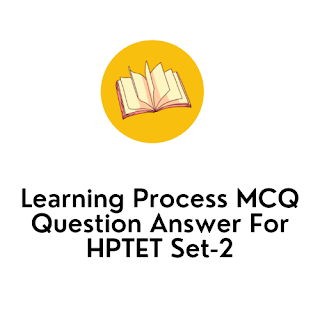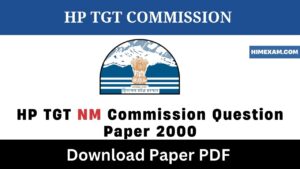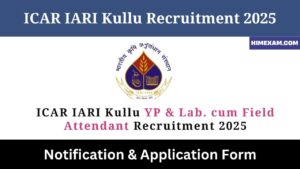Learning Process MCQ Question Answer For HPTET Set-2 In English
|| Learning Process MCQ For HPTET Set-2 in english || Learning Process Question Answer For HPTET Set-2 in english ||
37. Pavlav used the contract-response theory of learning on rendering.
(A) Rabbit
(B) Mice
(C) dog
(D) Cat
38. According to Piaget, the thinking of children differs from that of adults, rather than …….
(A) Quantity Type
(B) size; Tangibility
(C) type; The quantity
(D) Size: Kiram
39. According to Vygotsky, children learn
(A) When reinforcement is provided
(B) By maturity
(C) By simulation
(D) Interaction with adults and adults
40. Learning
(A) is not affected by the emotions of the learner
(B) weakly related to emotions
(C) is independent of the emotions of the learner
(D) is influenced by the emotions of the learner
41. According to Piaget, which of the following factors is important in influencing development?
(A) Bhabha
(B) Revaluation
(C) Experience with the physical world
(D) simulation
42. Cognitive ability coming in pre-operative period is
(A) Ability to think abstractly
(B) Conceptual inference thinking
(C) Eligibility for goal-driven behavior
(D) Ability to understand the other’s point of view
43. According to Vygotsky, learning cannot be separated
(A) its social context
(B) Enforcement and periodic processes
(C) Reinforcement
(D) Measurable change in behavior
44. is the originator of pragmatism
(A) Watson
(B) Thorndike
(C) S, Freud
(D) Yuga
45. The following is not an example of constructivist learning
(A) Experimentality
(B) Field Trip
(C) Story room talk (Varva)
(D) Textbook study
46. Which of the following is not an example of learning based on observation of Bandura?
(A) Learning of earthworm amputation by students
(B) The enthusiasm of cricket
(C) Dislike towards social studies
(D) Close your bags when the school bell rings
47. Vygotsky said about child development
(A) It is caused by genetics of sacraments
(B) It is the product of social interactions
(C) is the product of formal education
(D) It is the result of inclusion and adjustment
48. Learning is a method –
(A) To remember the facts
(B) To memorize the topic given in the textbook
(C) Meaning making by experience
(D) Preparation for the exam
49. What is required for learning?
(A) experience
(B) stabilization
(C) Autonomy
(D) All these
50. Education can be more effective,
(A) Students should be given autonomous control to work on their own
(B) Chhatra learning be controlled and controlled by the teacher
(C) Teachers play a central role in interpreting facts
(D) Teacher should direct learning
51. Learning in boys-
(A) Learning by rote
(B) Reading a textbook
(C) Transfer of knowledge by teacher
(D) takes action
52. Learning takes place effectively, if
(A) The child should be prepared to learn
(B) Child, repeat what he learns
(C) The child should feel satisfied
(D) Child should do all of the above
53. is the exponent of ‘rules of learning’
(A) Freud
(b) skinner
(C) Thorndike
(D) Adler
54. The effort of learning and forgetting is the exponent of ‘theory’.
(A) Kohler
(B) Yorndike
(C) Pavlov
(D) Skinner
55. According to Piaget, what are the stages of modifiable child development?
(A) 3 states
(B) 4 states
(C) 5 states
(D) 6 states
56. The following are learned under signal learning
(A) Psychology
(B) Traditional adaptation
(C) environment
(D) Psychiatrist
57. Lawrence Kohlberg is known for research in the field of development-
(A) cognitive
(B) Body
(C) Ethical
(D) Singer
58. ‘Learning is a process of progressive harmony in practice. This statement is-
(A) Crow and Crow
(B) Piaget
(C) Skinner
(D) Kohler
59. The classical conditioning theory of learning was formulated by-
(A) Skinner
(B) Pavlov
(C) Thorndike
(D) Kohlvarg
60, Which learning is permanent?
(A) By rote
(B) Listening
(C) understanding
(D) seeing
61. Who has given the ‘law of readiness’?
(A) Pavlov
(B) Ewinghas
(C) Thorndike
(D) Skinner
62. The first step in the process of learning is
(A) Textbook reading
(B) Interest
(C) experience
(D) curiosity
63. On what basis is the psychologist Thorndike a boy?
(A) On the basis of thinking and imagination
(B) On the basis of sovereign and subordinate absolute
(C) On the basis of independence and dependence
(D) None of the above
64. What is most important in ‘attempt and error’?
(A) practice
(B) Motivation
(C) Goal
(D) debate
65. Which of the following is not included in the rule of learning?
(A) practice
(B) readiness
(C) Sports
(D) Effect
|| Learning Process MCQ For HPTET Set-2 in english || Learning Process Question Answer For HPTET Set-2 in english ||









